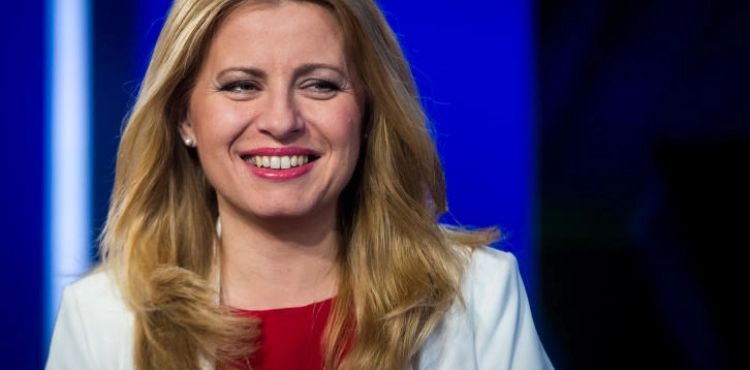The Slovaks have chosen to change by electing liberal lawyer Zuzana Kabutova, the country´s first female president, who, for many, is a counterweight to populists in power.
The 45-year-old anti-corruption lawyer, who has no political experience, received 58.40 percent of the vote based on the results of all the ballot boxes, compared to her rival Marus Sefkovic, the EU energy commissioner, supported by the ruling Social Democratic Party.
The result, analysts say, could be a warning to the ruling party ahead of European elections in May and legislative elections next year.
Immediately after the announcement of the preliminary results, Prime Minister Peter Pellegrini expressed his hope that there would be "constructive cooperation" with the new president of the country, which called for its Slovaks to unite.
"To look for what unites us, to put cooperation above all personal interests," Kapotova told the press.
"The result is that it is possible not to bow to populism" and "gain people´s trust without resorting to hostile expressions and personal attacks," she said.
"I congratulate Zuzana Kabotova on her election as president of Slovakia, a strong vote in the heart of Europe for a state of law and tolerance," President of the European Council Donald Tusk congratulated the new president.
"The Slovakians have chosen to change, they have voted for a different political pattern than we have known so far," says Anita Vilagi, an analyst in Bratislava.
"I am happy because Slovakia has elected a woman for the presidency," said Ivita Rabyliova, a 34-year-old schoolteacher, who represents women in senior positions.
"Cabotova challenges the stereotype of a political official: she is a woman, divorced and new in politics, with a positive feeling that I see our citizens choosing someone who destroys all stereotypes."
"The fact that the Slovaks elected a woman to take over the presidency means that the society is changing," Vilaji said, pointing out that Kabutova´s character and her career were very much in her favor.
"I can say if she won, even though she is a woman," she said.
"The request for change includes the exercise of governance represented by the ruling coalition," explains analyst Pavel Papus.
The president in Slovakia does not rule, but he approves all international treaties and appoints senior judges, he is the supreme commander of the armed forces and he has the veto power.
The assassination of investigative journalist Jan Kusiak and his fiancee was also shot dead by the SPD government.
The journalist was preparing to publish an article on alleged relations between Slovak politicians and the Italian mafia.
Public condemnation and unprecedented demonstrations led to the resignation of Prime Minister Robert Fico, who remained the ruling party leader and a close ally of the current prime minister.
So far, five people have been arrested in the assassination case, including the alleged mastermind, a billionaire who appears to be linked to the ruling party.
At the time, Kabutova, who participated in the demonstrations, pledged during her campaign to work for a more effective and independent judiciary.
The electoral promises of the new president, the mother of two children, included protecting the environment, supporting the elderly and reforming the justice system that "will deprive prosecutors and police of all political influence."
In a predominantly Catholic country, Kabotova did not hesitate to publicly express her position in favor of freedom of abortion and the promotion of gay rights, arguing that the life of a child "with two people of the same sex exchanging love would be better" than in an orphanage.
On the other hand, her opponent highlighted "the traditional values ​​of the family" and went to voters who wanted "to remain a Christian Slovakia."
According to the results of the statistics office, Kabotova´s positions allowed her to win in cities as in the more conservative countryside.
But analysts point to a low voter turnout of 41.79 percent.
"A weak participation means that voters opposed to the term and extremists have not been able to choose a president who represents their values," analyst Gregoris Misnikov told AFP.
The new president, who will succeed outgoing head of state Andrei Kiska, will be sworn in on June 15.












